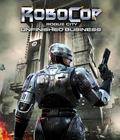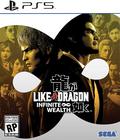Buy Like a Dragon: Infinite Wealth
Like A Dragon has always been an ambitious franchise. Sometimes, you'll get a straightforward game, and other times, you'll get a sprawling epic with multiple player characters and a twist-filled plot. Like a Dragon: Infinite Wealth feels like one of the franchise's most ambitious titles to date. With two protagonists, a cross-continental adventure that goes from Japan to Hawaii and back again, and an absurd amount of content, Infinite Wealth is the biggest Yakuza title to date and arguably one of the best.
Infinite Wealth puts players back into the shoes of Ichiban Kasuga, former Yakuza-turned-wannabe hero. Several years have passed since the original game, and Kasuga has settled into a life of helping ex-Yakuza members find legitimate work in the wake of the Great Dissolution. Upon hearing that his birth mother, Akane, may be alive and well in Hawaii, he sets off to visit her and deliver the ashes of his father. As soon as he arrives, he is embroiled in a complex plot involving gangsters, cults, and an international conspiracy. He is quickly in contact with the supposedly dead Kazuma Kiryu, who has also been sent to Hawaii to investigate Akane. This will be his last mission for the Daidoji — not because he's going to be free but because he has been diagnosed with terminal cancer, and his time is rapidly running out. Together, Kiryu and Kasuga must solve the mystery before time runs out.
Infinite Wealth's plot is effectively two separate RPGs with an interconnected story. Kasuga's tale is a sun-drenched adventure through Hawaii's seedy underbelly, while Kiryu's journey is an exploration of his life and the impact he's had on himself and others. Surprisingly, they mesh very well, and the constant swapping between the two characters works. Kiryu is more down to earth, and Kasuga is more excessive, but they work well together. Infinite Wealth has one of the most straightforward plots in the franchise, with the focus being on the protagonists and their rationale for doing things.
This feels like Kiryu's send-off from the franchise — even though it's happened multiple times before — but this time, it feels more meaningful. This is one of the rare times that we see Kiryu spending a lot of time with other people. We focus on Kiryu as a character rather than a force of nature, since we see him having friends who he interacts with, and we see some of his previous adventures. It's fitting that his ultimate foe is the inevitability of aging and death, rather than a physical enemy.
Thankfully, I don't feel like Kasuga gets shortchanged. While longtime fans might focus on Kiryu's last days, Kasuga gets to focus on the future and how he will live up to his ideal of a hero. He's a lot goofier than Kiryu in a heartfelt way, and while there are times when he seems overly forgiving or unwilling to compromise, it lends him an almost childish charm. As with Yakuza: Like A Dragon, I finished the game feeling glad that Kasuga is taking over the protagonist role.
At its core, Infinite Wealth is exactly what's expected from the franchise. You're given busy chunks of towns to explore filled with minigames, side-quests and fighting. Nothing has changed from the franchise norm, aside from the game returning to the turn-based combat style introduced in Like A Dragon. You know what you're getting, but the game feels fresh.
The combat system in Infinite Wealth reuses the same turn-based combat in the previous game, with a few changes. When it's their turn, every character can move freely within a circle at their feet, so players can reposition and take greater advantage of the copious context-sensitive attacks. Attacking near a weapon on the ground causes your character to pick it up and hit with it. Attacking from close range boosts your damage; attacking near an ally causes them to go into a combo attack. The exact action you are going to do is clearly shown on the menu.
This adds a surprising amount of depth and strategy to combat, as you frequently have several options with your basic attack. You can try to position yourself so you're near an object that does elemental damage to the enemy to get a "free" spell attack. You can use knockback to force an enemy to hit one of their allies or knock them into one of your allies, so they can do a follow-up attack. You can get close to an ally to do a combo attack, which isn't necessarily stronger but replenishes MP for both characters.
Like the previous game, Infinite Wealth uses a job system. Each character has at least one job that's exclusive to that character, in addition to a massive variety of unlockable classes. This includes every job from the first game and a bunch of new ones. Desperado is a gun-focused class that can inflict a variety of bad status effects. Housekeeper is a magic-focused class that can hit different elemental weaknesses. My favorite is Action Star, which lets you cosplay as Bruce Lee and do massive physical damage with a variety of bonuses and buffs.
Perhaps the most intriguing of the new jobs is Kiryu's Dragon of Dojima class. As in previous games in the franchise, Kiryu can swap between three fighting styles as needed. Brawler is a standard fighting style that allows Kiryu to perform context-sensitive heat actions and counter-attack enemies. Rush is weaker but improves evasion and allows him to attack and move twice a turn. Beast is a grappling style that breaks guards, performs AoE attacks, and can Guard to boost your next physical attack.
Each character also has a Hype meter that fills as they fight. Once it is full, they can use it to unleash a combo attack with Kasuga or Kiryu, depending on who is the party leader. Those two are the exception in that Kasuga can perform powerful group team attacks, while Kiryu can use his Hype meter to temporarily break out of the turn-based mechanics and do a real-time beatdown on foes.
Overall, the combat is much improved. The addition of being able to move around seems small, but it gives a lot more strategy to your actions and encourages you to more carefully consider your positioning, such as setting up proper combo attack chains or positioning yourself just right to grab a nearby bicycle and slam it directly into an unsuspecting foe's face. There are still times when it can be frustrating when an enemy moves around and ruins your perfect lineup, but it's much less of a problem than before. The gameplay can be too easy if you min-max, but it remains engaging throughout.
Of course, like any good Like a Dragon game, Infinite Wealth goes above and beyond when it comes to minigames and side-quests. There are a lot of familiar ones, including casino games, old arcade games, and collecting cans, but there are new and involved minigames, too. One has you playing Crazy Taxi — but in the role of an Uber Eats bicycle driver. Another has you trying to hook up on an online dating app, where both you and the people on the other end are usually lying about something.
By far the most involved minigames are the new Sujimon and Island Management games on Kasuga's side of the pond. Sujimon is the in-game term for the various weirdos that your team fights. You can not only fight them, but you can also recruit and train. A majority of the enemies can be recruited into your six-man teams to engage in special 3v3 battles that feature elemental strengths and weaknesses and charged-up special moves. You can train the Sujimon to take on gyms and trainers and eventually work your way to be a Sujimon Master.
Yes, they put Pokémon in Like A Dragon. It's a surprisingly fun, if somewhat simple, minigame when it comes to combat, but collecting all of the Sujimon can be a chore; some need to be caught, some need to evolve from weaker versions, and you have to roll some on a gatcha. Unlocking stronger Sujimon isn't just for the minigame, but they can also be equipped to Kasuga's Sujimancer class to power up special attacks.
The Island Management game is the Animal Crossing to Sujimon's Pokémon. After saving a turtle from danger, Kasuga is swept off to a ruined tropical paradise. Ne'er-do-wells have turned a once-beautiful resort into a trash dump, and it is up to Kasuga to make it a five-star resort. He'll have to clean up the trash, build new locations, invite guests to the island, and take his baseball bat to the would-be Captain Planet villains.
Like Sujimon, this is also a straightforward minigame. If all you want to do is min-max the island to get rewards, it is easy. However, you're given an absolutely staggering number of items to work with, and you can build the island however you want. Do you want to make an elegant Japanese garden or a sleazy, neon-filled gambling paradise? You can. Do you want to fill the island with golden statues of Kiryu? Go for it. You even get your own house to customize and improve. If you want a fun way to relax and build an island, Infinite Wealth pulls it off. You can even bring Sujimon to the island to train them or use the online feature to allow others to visit your island. It's not going to replace Animal Crossing or Stardew Valley, but it's surprisingly addictive and fully fleshed out beyond what's needed for a silly minigame.
Kiryu's minigames are more somber. While Kaguya is partying in Hawaii, Kiryu is literally going through his bucket list of things to do before he dies. This mostly revolves around a lengthy trip down memory lane, where he remembers old events, rediscovers old friends, and remembers what life was like before the twin misery of him going into hiding and getting cancer. It's not exactly smiles and laughs, but it is a solid way to revisit all of Kiryu's adventures. This part is likely only relevant for longtime fans, but everything from the mainline games to the various spin-offs gets a callback.
Infinite Wealth looks great for the most part. Hawaii is an absolutely beautiful environment to explore, and the combat and cut scene graphics look fantastic. Some of the in-between areas look a little basic, but it doesn't get in the way of enjoying things, and every major scene looks top-notch. The massive amount of fresh new space to explore in Hawaii makes the game shine and helps it feel distinct. The soundtrack is fantastic, and the voice acting is fantastic. Both the dub and sub do a great job, with my only real complaint being that Kiryu's English voice actor sounds a little too young for a 55-year-old, hard-living cancer patient.
Like A Dragon: Infinite Wealth is an overall fantastic entry in the franchise. Stuffed to the gills with content, there isn't a more fully packaged RPG on the market. The plot is charming and heartfelt, the characters are lovable, and the gameplay incredibly fun. It doesn't matter if you're a longtime Kiryu fan or jumped into the franchise with Kasuga; it's everything a Like a Dragon game should be.
Score: 9.5/10
More articles about Like A Dragon: Infinite Wealth











 Like A Dragon: Infinite Wealth is the latest installment in the turn-based RPG series, and a sequel to Yakuza: Like a Dragon.
Like A Dragon: Infinite Wealth is the latest installment in the turn-based RPG series, and a sequel to Yakuza: Like a Dragon.






































